Snow boots vs hiking boots: what's best for winter?
We weigh up the advantages and disadvantages when it comes to snow boots vs hiking boots to help you choose the best footwear for your wild winter adventures
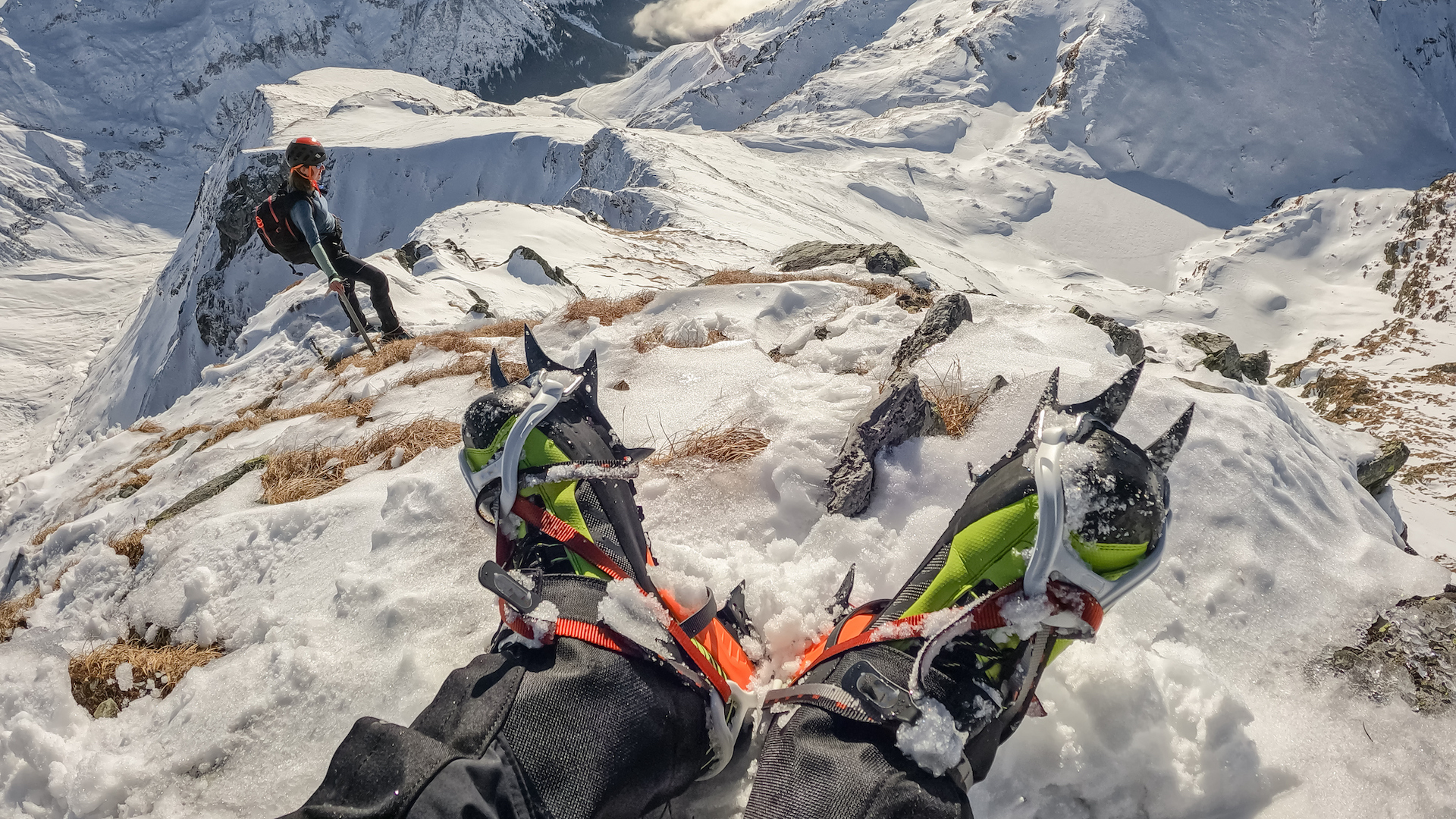
All the latest inspiration, tips and guides to help you plan your next Advnture!
You are now subscribed
Your newsletter sign-up was successful
There's no doubt that traction becomes much more of an issue in winter. When it comes to hiking on iced up or snowy trails, you need the right tools for the job, especially if you're heading up into the mountains. This is where the decision of snow boots vs hiking boots comes in. As their name suggests, snow boots are specifically designed for white stuff underfoot, though mountaineers would still opt for some form of hiking boot.
So, do you go with the classic all-terrain, year-round hiking boot or a more specialized snow boot designed for those alpine conditions? Is there are type of hiking boot we'd specifically recommend for the snowy season? Our winter experts are here with their advice on whether to opt for hiking boots or snow boots.
Snow boots vs hiking boots: the verdict
Based on the criteria we’ve deemed most important, hiking boots come out with a slight edge over snow boots owing to their lighter weight, breathability, comfort and versatility. By seeking out the right pair, and possibly teaming them up with gaiters, you can wear one pair of hiking boots year-round. For really technical terrain, you'll need a pair of winter hiking boots or mountaineering boots, which are designed to be compatible with crampons.
That said, if you’re planning on doing lots of hiking in deep snow and other wet conditions, snow boots will certainly have you covered and if you don’t use your hiking boots in winter, they’ll last longer, so there’s really benefits to both.
Comparison table
| Header Cell - Column 0 | Snow boots | Hiking boots |
|---|---|---|
| Traction | Very good traction in snow | Traction depends on style but can be very good |
| Weight | Heavy | Usually lighter |
| Waterproof qualities | Yes, plus tight cuffs to keep falling snow out | Gore-Tex boots are waterproof but these boots don't come up as high or feature tight cuffs |
| Breathability | No | Usually breathable |
| Insulation | Well insulated and warm | Insulated styles are available |
| Comfort | Heavy, bulky and sweaty, less comfortable | Breathable, lightweight and comfortable |
| Ankle support | Yes, these boots come higher up the calf | Not always, varying heights |
| Versatility | Only for walking in snow | Usable year-round |
Meet the experts
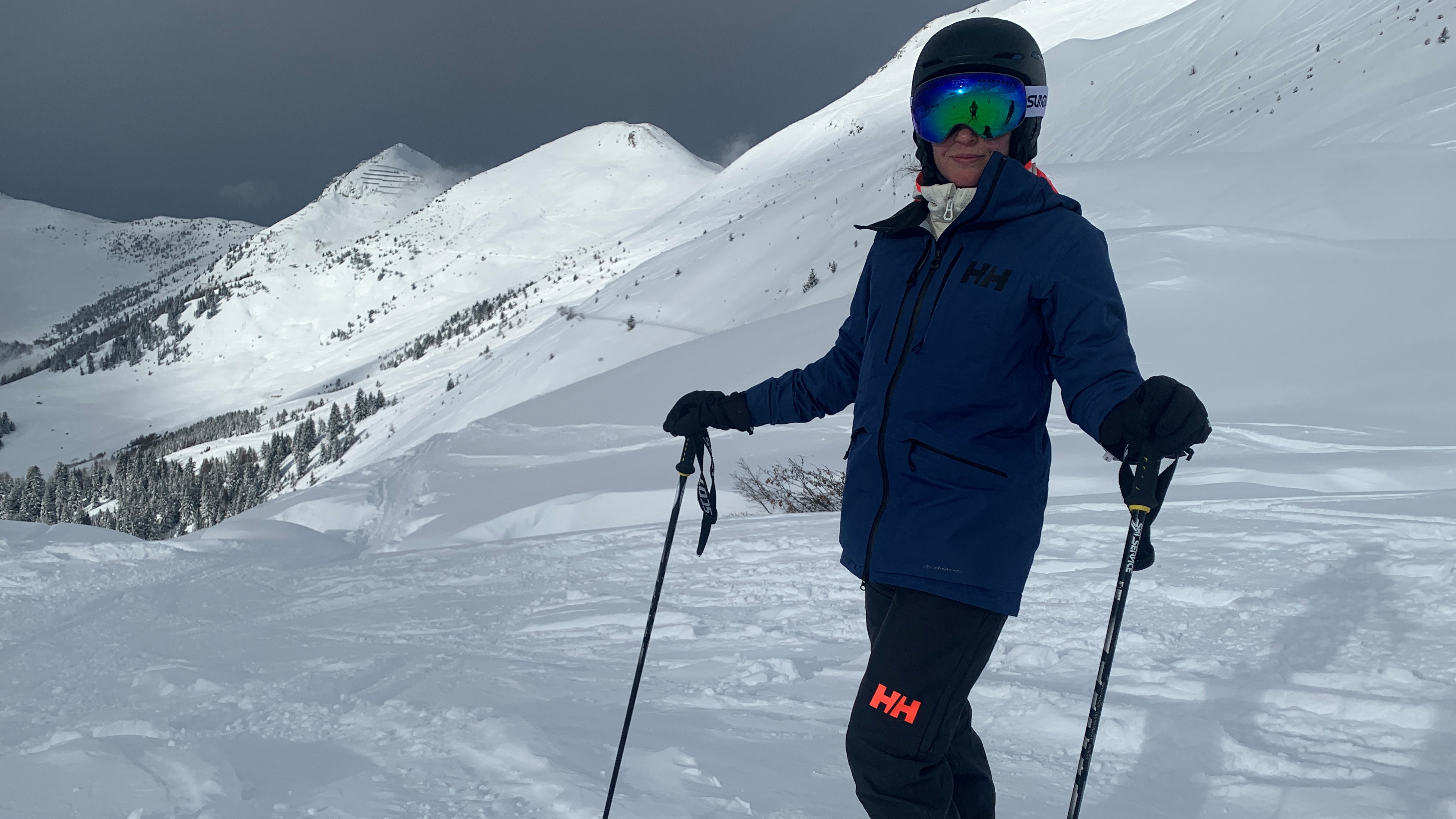
Julia is no stranger to snowy adventures. She grew up near the Scottish Highlands and moved to the US for university. Then, aged 27, she made a huge leap of faith and moved to Vali, Colorado to live the ski town life. Now back in Scotland, she regularly gets out into the Munros of her Highland home. Julia is one of our main outdoor gear experts.

Alex is passionate about winter hiking and mountaineering, counting them among his favourite outdoor activities. The former President of the London Mountaineering Club has completed many exciting snowy adventures and knows the importance of quality footwear.
Today's best deals
Traction
- Snow boots, specifically designed for winter, give solid traction
- Not all hiking boots are designed for snowy, icy conditions
- However, dedicated winter hiking boots are a good option and some can be combined with crampons
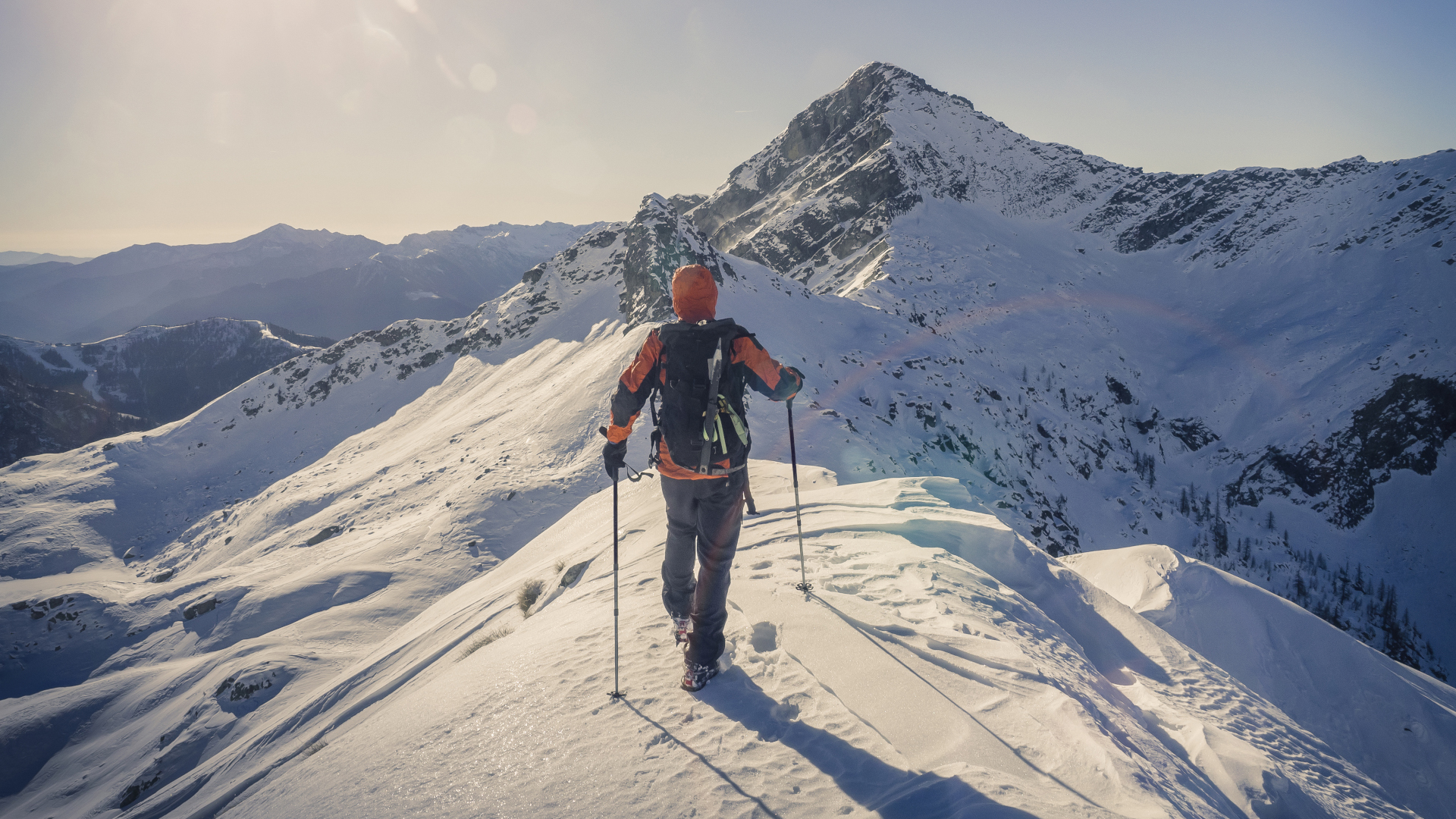
If you’re planning on walking in the snow, naturally the first thing you want is footwear that provides great traction to keep you from slipping and falling.
All snow boots are designed to keep you upright in the snow, so you can definitely depend on them to have great traction, while hiking boots come in varying degrees of quality and are built for different types of trekking and terrain. As long as you make sure you get a decent pair of winter hiking boots that are intended for freezing conditions, you should have ample traction, but across the board, snow boots win this round. However, some winter hiking boots are compatible with crampons, which give excellent hold on icy terrain. Then there's always the option of other winter traction devices too, for less technical ground.
Weight
- Hiking boots are generally lighter than snow shoes
- However, winter hiking boots are also on the heavier side
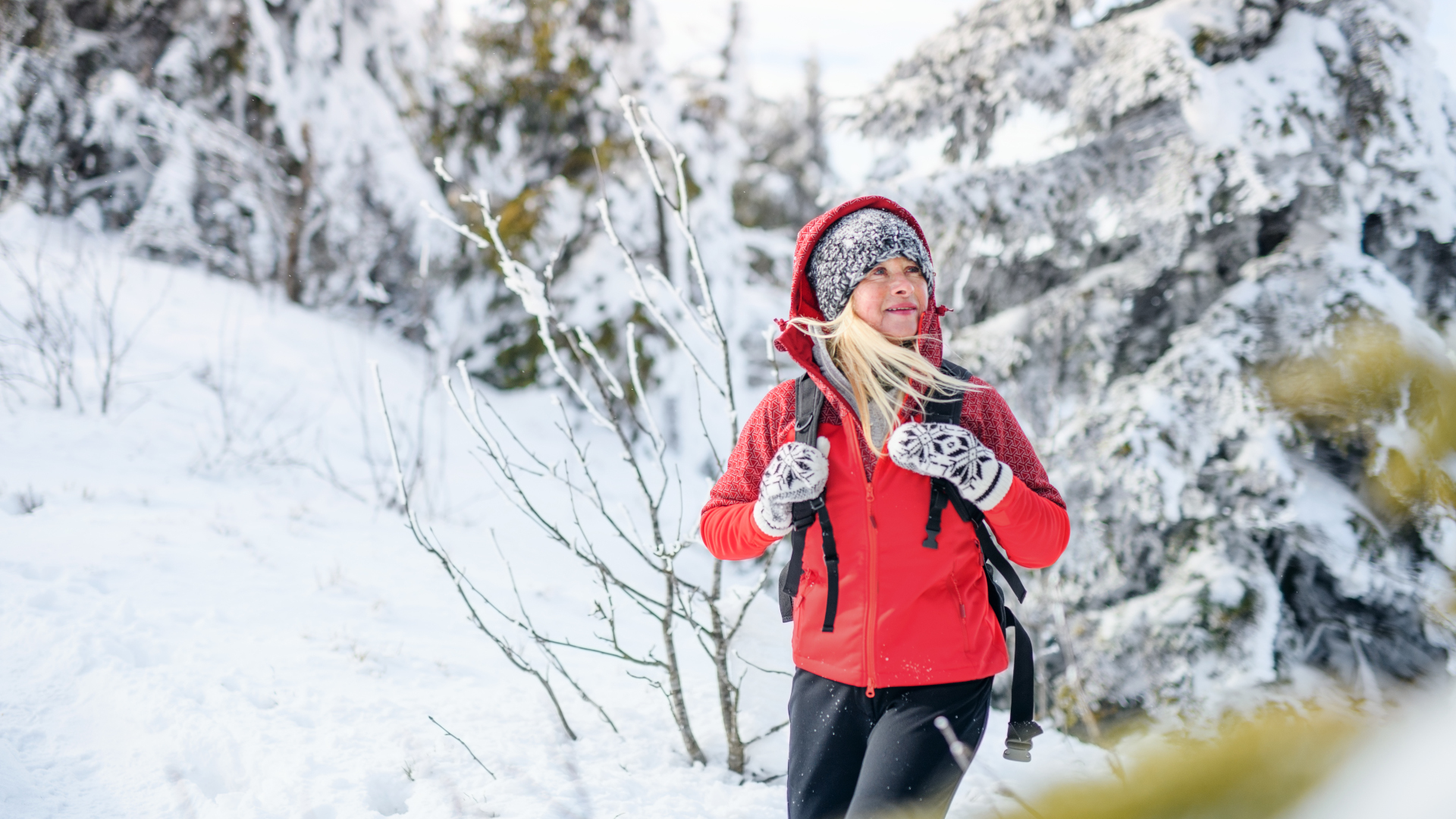
While you shouldn’t expect the featherweight experience you get from trail running shoes, weight is still a factor to consider when choosing any type of hiking footwear. The heaver the boot, the slower your gait.
All the latest inspiration, tips and guides to help you plan your next Advnture!
Hiking boots come in different weights, but will generally be lighter than snow boots, which are all designed to be heavy. However, winter hiking boots, with their robust and rigid outsoles and protective rands are much heavier than standard hiking boots too.
Waterproof qualities
- Snow boots are waterproof and usually have a high cut up to the calf
- Hiking boots are often waterproof and can be combined with gaiters for added protection
There's nothing worse than getting wet feet on a winter hike, whether it's from falling precipitation or postholing in deep snow.
Because they’re designed for the white stuff, snow boots will definitely be waterproof and also extend further up your leg and feature a snug cuff, so they’ll keep falling snow and rain out and protect you from getting a wet foot if you sink in in deep snow.
Hiking boots can come waterproofed if they boast a Gore-Tex membrane, which should do a great job of keeping moisture out, however they don’t come up as high on your calf as snow boots, and they won’t have a tight cuff so you may need to wear gaiters with them for added protection.
Snow boots edge it.
Breathability
- Hiking boots are generally more breathable than snow boots
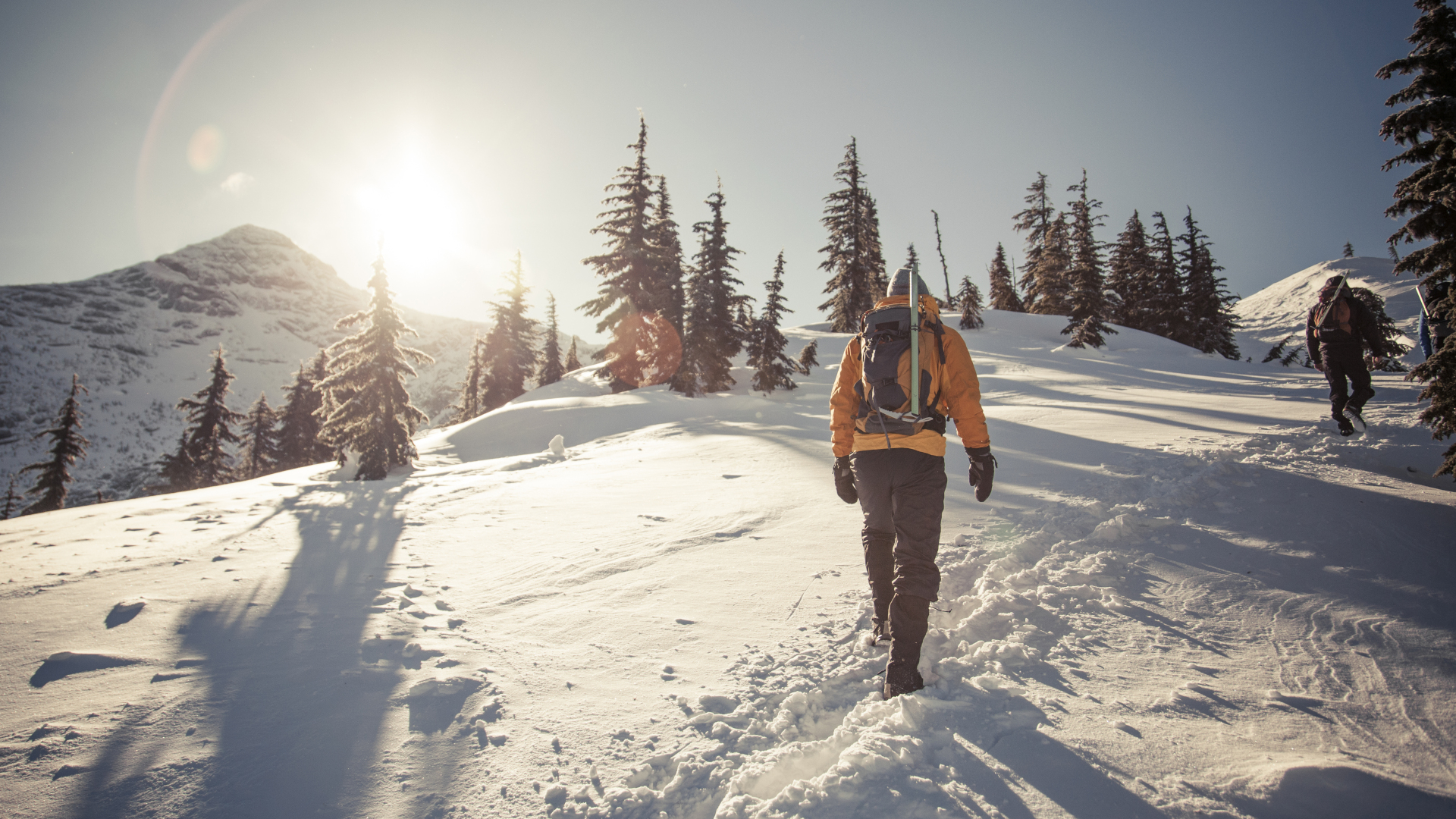
One downside to the dependability of waterproofing on snow boots is that they’re not very breathable, meaning if you are on a strenuous hike and you get sweaty feet, you’ll end up with unwanted moisture inside your boots. A good moisture-wicking hiking sock combined with a hiking boot is the better option when it comes to breathability.
Insulation
- All snow boots will be well insulated, providing warmth in cold conditons
- Some hiking boots are more insulated than others
Naturally, when you're hiking in snowy conditions, warm feet are going to be at the forefront of your mind. Once again, the level of insulation of hiking boots depends on the style you buy, but plenty of hiking boots offer all the warmth you need in a snowstorm, whereas all snow boots will be well-insulated and provide plenty of warmth, giving them a slight edge here.
Comfort
- Hiking boots are generally more comfortable than clunkier snow boots

If you’re planning on long distances in winter weather, comfort is a very real concern. Once broken in, lightweight, breathable hiking boots have really come a long way in the comfort department, giving them a good edge over snow boots which are heavy, bulky and not very breathable.
Ankle support
- Snow boots provide good ankle support due to their hight cut
- Hiking boots come in a variety of cuts, though winter hiking boots will provide great ankle protection
Terrain gets trickier come winter and if you’re seeking good ankle support, you’ll definitely get it from a pair of snow boots since they come up high on the calf. Hiking boots come in varying heights so you’ll need to make sure you get a higher-fitting pair. Winter hiking boots are designed to provide a great amount of ankle support.
Versatility
- Hiking boots, even dedicated winter boots, are more versatile than snow boots
Good gear doesn’t come cheap and a good pair of hiking boots can be used on all different types of terrain, year-round, so you’ll get more for your money. Snow boots, on the other hand, are designed for one thing only and will spend the rest of the year in storage while you use other footwear. If you’re only looking to make one purchase, hiking boots probably make the most economical sense.
Julia Clarke is a staff writer for Advnture.com and the author of the book Restorative Yoga for Beginners. She loves to explore mountains on foot, bike, skis and belay and then recover on the the yoga mat. Julia graduated with a degree in journalism in 2004 and spent eight years working as a radio presenter in Kansas City, Vermont, Boston and New York City before discovering the joys of the Rocky Mountains. She then detoured west to Colorado and enjoyed 11 years teaching yoga in Vail before returning to her hometown of Glasgow, Scotland in 2020 to focus on family and writing.

